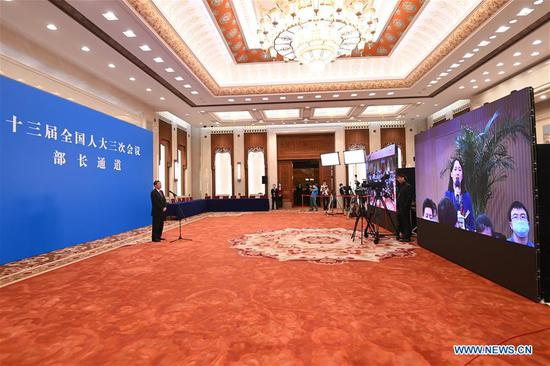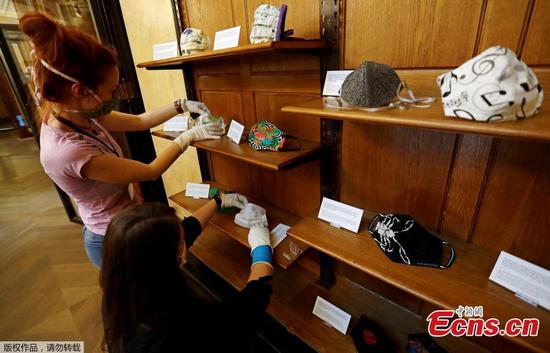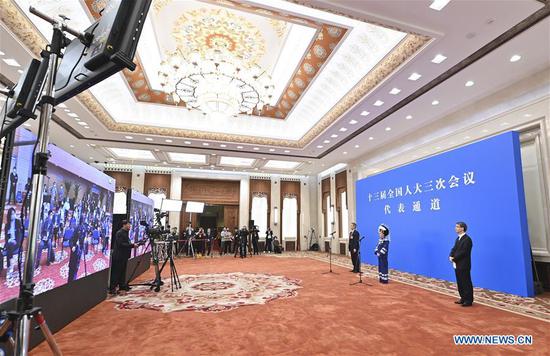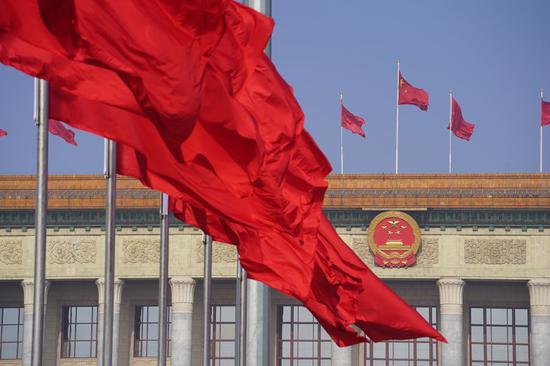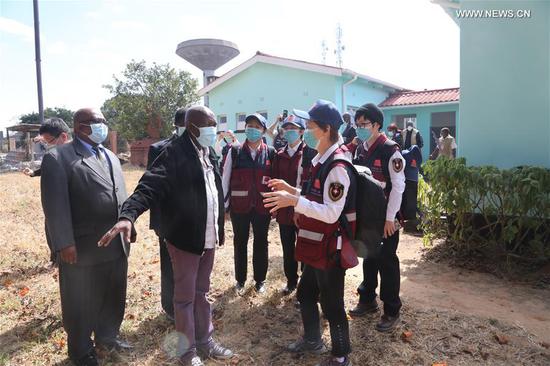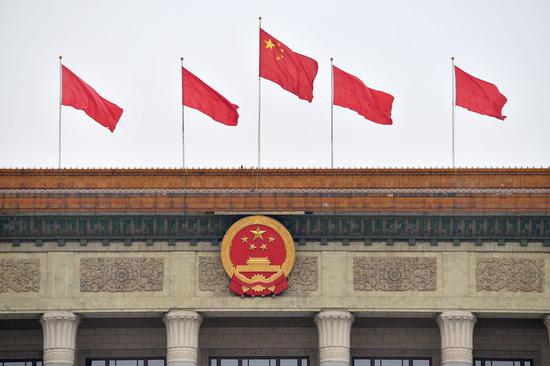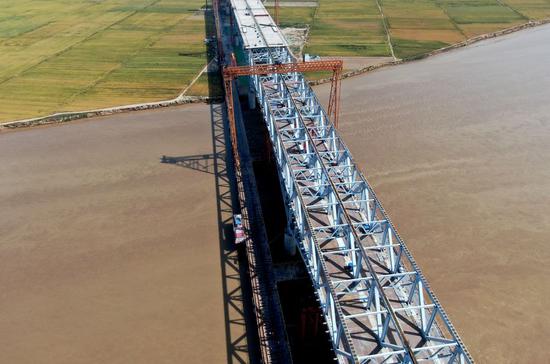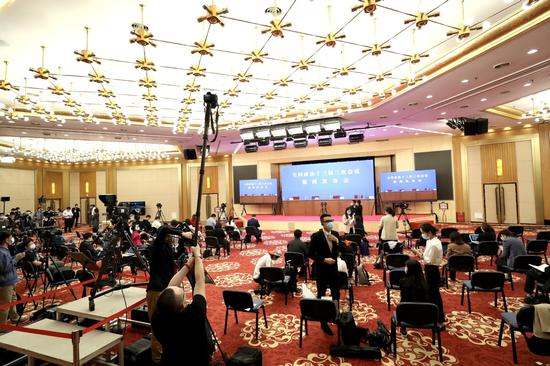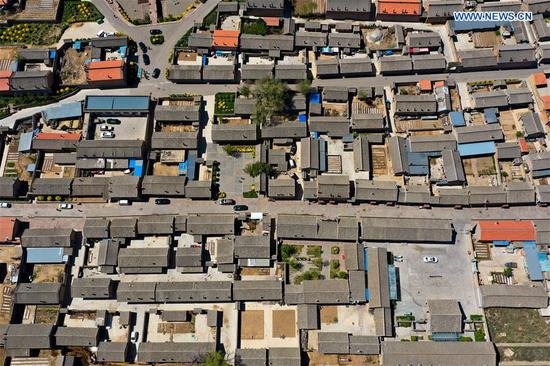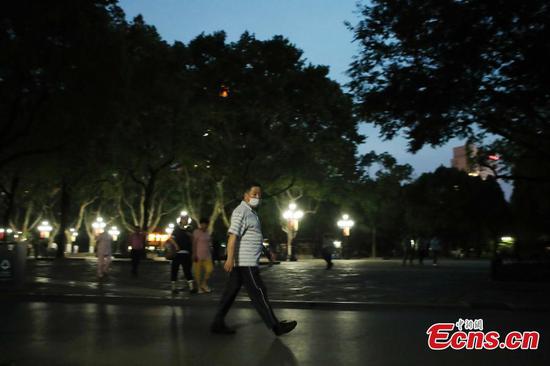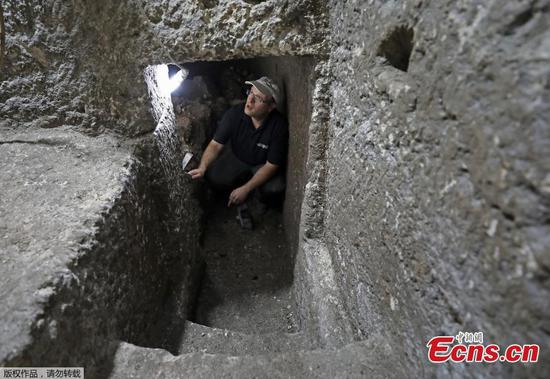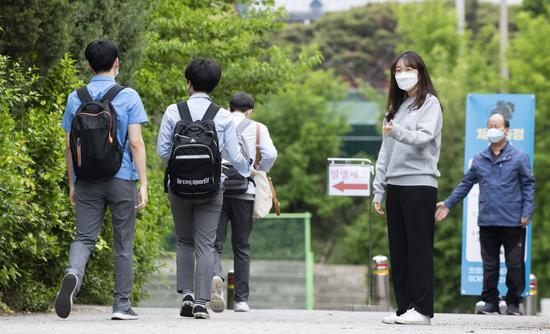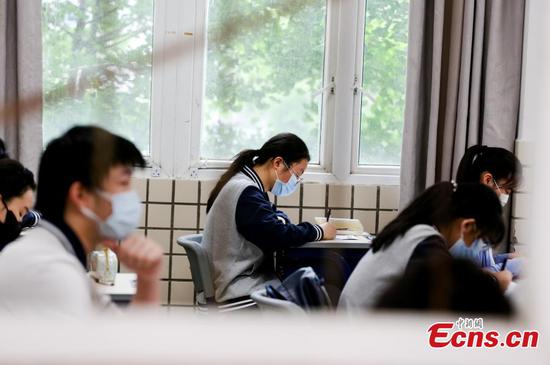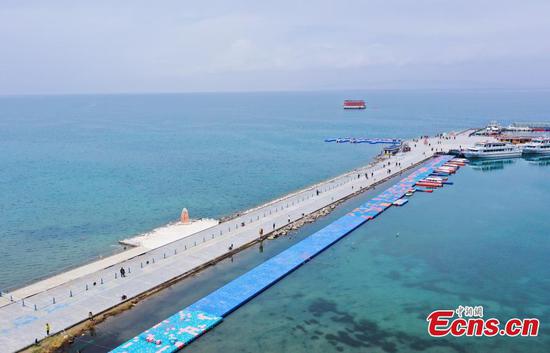![A temperature sensing device developed by Baidu is in use at an office building in Beijing. [Photo by Zou Hong/China Daily]](http://image.cns.com.cn/ecns_editor/transform/20200523/Bqgp-fzwqhwq0276939.jpg)
A temperature sensing device developed by Baidu is in use at an office building in Beijing. [Photo by Zou Hong/China Daily]
China should speed up efforts to build world-leading new artificial intelligence infrastructure and smart transportation systems that use cutting-edge technologies such as AI and 5G, said Robin Li, chairman and CEO of leading Chinese search engine Baidu Inc.
Li, who is a member of the 13th National Committee of the Chinese People's Political Consultative Conference, said more efforts should be made to cultivate AI talent along with steps to promote the application of autonomous and controllable open source deep learning platforms in various industries.
"New technologies such as AI and 5G are becoming the new engines that drive the development of intelligent transportation," Li said on the sidelines of the ongoing two sessions. He suggested accelerating steps to establish intelligent transportation infrastructure.
More efforts are also needed to explore urban intelligent transport and propel the upgrading of vehicle-road coordination technology, which is used to increase the interaction between smart road infrastructure and self-driving cars, Li said.
The country will step up the construction of new types of infrastructure, develop next-generation information networks and expand 5G applications, according to the 2020 Government Work Report.
Li said the new label for China's economy will be the smart economy in the next decade. "If the smart economy is like a rocket, the new infrastructure is the fuel chamber that will accelerate its launch."
According to him, the cutting-edge AI chips, cloud services, application development platforms, open source deep learning frameworks, and general AI algorithms represent the new infrastructure of the new era.
"This new infrastructure will play a pivotal role in the intelligent transformation of different industries, especially in areas like intelligent transportation and smart cities, which require better coordination between technology and physical infrastructure," he said.
According to Li, intelligent transportation can improve the current transportation efficiency by 15 percent to 30 percent and help further boost the Chinese economy.
Baidu was chosen to lead the establishment of the country's AI national laboratory on deep learning in 2017. Self-driving technologies are important for the national research project.
The Beijing-based tech heavyweight has also ramped up its efforts to promote the commercialization of self-driving technology, and fully opened its autonomous taxi service Apollo Robotaxi in Changsha, Hunan province.
In addition, Li suggested setting up an opt-out mechanism for the personal information that was collected during the COVID-19 outbreak. The authorities should study and formulate the standards related to the collection, storage and use of personal information under special circumstances and standardize the management of the collected data.
Xiang Ligang, director-general of the Information Consumption Alliance, a telecom industry association, said the spending on new infrastructure that covers a number of key fields including transportation, energy and telecommunications will help hedge against the negative effect of the COVID-19 outbreak and inject new impetus into the economy amid mounting downside pressure.














